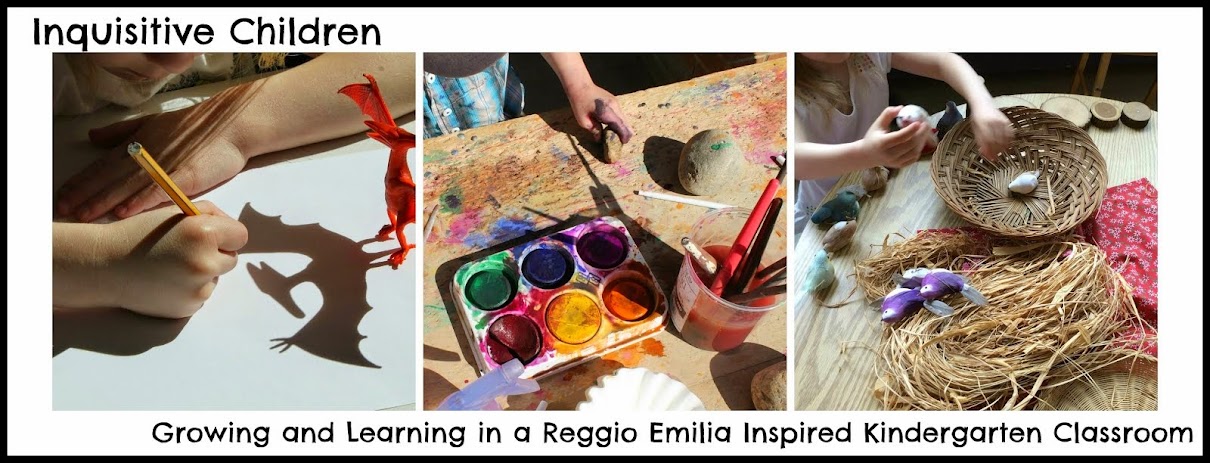In a FDK classroom, interests may shift, questions may arise that have nothing to do with the current inquiry, or the children may suddenly stop playing at a centre that up until now has been the most popular hangout.
Sometimes it feels as if there's just no inquiry happening! This feeling usually arises when the teaching team feels that there is nothing "formal" going on (e.g., I haven't gone to find fifteen books about spiders/airplanes/castles in the library, and the children just aren't biting when I offer an enticing activity to extend their understanding of something they seemed interested in yesterday).
We've learned to just ride this out. When our hunting inquiry drew to a natural close, we observed and listened carefully to see what other interests might arise. For a few days, a few of the children were interested in tying and taping string all over the classroom like webs. When this evolved into chasing and "webbing each other" like Spiderman, we tried to shift their focus towards learning more about spiders and how they spin webs. No bites. It felt like pulling teeth to generate an "I wonder" chart. The interest just wasn't there.
We decided to change some of our centres up, leaving them open-ended enough so that the children had choice. We decided to focus on sorting, as many of the children were naturally doing this anyway during our tidy-up times. We created a planning template to see how many areas of the program document we could touch on with various centres. The children explored many new materials in new ways, and we were able to document all kinds of learning and discoveries as the children tried different ways of sorting various materials.
Kindergarten is like that. You might think the children are just playing (or in this case, just sorting), when in fact they are honing their fine motor skills by cutting with scissors, comparing and contrasting facial expressions, classifying living and non-living objects, and engaging in all sorts of complex conversations. The squirrel's tail and the piece of washed sheep's wool I added to our discovery centre sparked long discussions about where wool comes from, and why squirrels' fur is lots of colours.
My enthusiasm for wool almost led me to believe that these questions meant that an inquiry into sheep and wool was in the works. I resisted that hope, because the questions ended with that one discussion. Perhaps this interest will arise again, but for now it is just that: an interest. In the Spring I'll bring in a raw fleece and we can work through the process together. Perhaps I'll have some spinning enthusiasts among my class. Time will tell.
The bottom line is, inquiry never stops. Sometimes inquiries last two minutes while we have a conversation, or just the length of time it takes to read a story.
Yesterday we read a story about hibernation, not because I want to start a hibernation inquiry, but because someone picked it from the shelf and asked me to read it. The children's interest was piqued: they wanted to know how the animals know when it is time to come back to Canada, how the butterflies know the way to Mexico, and what a bear's snore sounds like. I wrote their questions down and will revisit them in the coming weeks and we'll see what happens.
I'll set that squirrel's tail and piece of wool aside in case a discussion about how animals stay warm in winter comes out of that read aloud!




